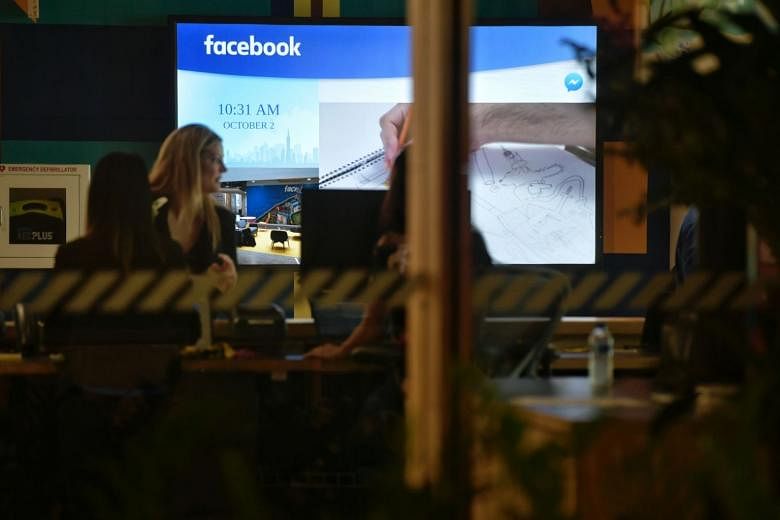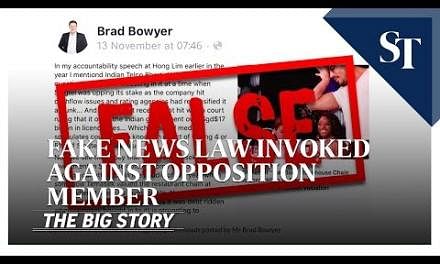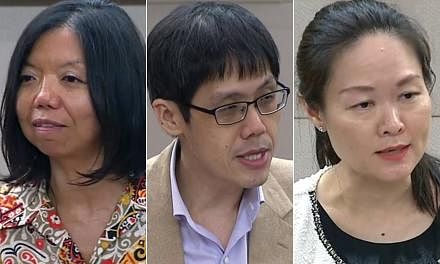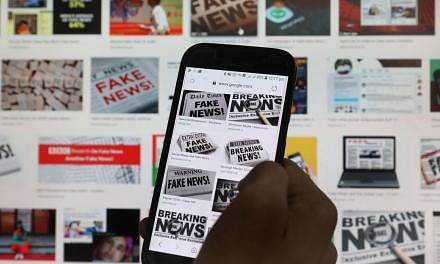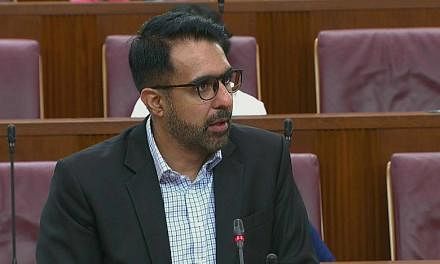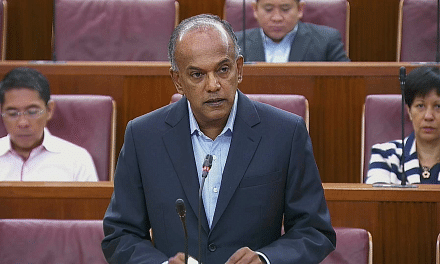SINGAPORE - Technology companies are partners of the Government in tackling the problem of fake news but they cannot be left to regulate themselves, said Law and Home Affairs Minister K. Shanmugam in Parliament on Tuesday (May 7).
These companies must be responsible in their dealings with Singapore but, given their profit motive and their past behaviour elsewhere, they could not be expected to act as a check on themselves, he indicated.
Referring to Nominated MP Lim Sun Sun's suggestion for a tripartite approach involving the Government, tech companies and consumers rather than relying on legislation alone to tackle fake news, Mr Shanmugam accepted that this was a fair point.
He said that while legislation provides the framework, it could not achieve all the objectives by itself and a lot of cooperation is needed.
But Mr Shanmugam added that tech firms are focused on profits with little incentive to do things that will affect their bottom line.
But profits must not be made at the expense of Singaporeans, said Mr Shanmugam.
"And they know that the Singapore Government cannot be bought. We don't take money from their lobbyists. And we mean what we say," he added.
"They can do business with us honourably. Singapore provides a proper rule of law framework for everyone, but they must also be responsible."
Mr Shanmugam made these comments during the second reading of the Protection from Online Falsehoods and Manipulation Bill, where he argued that tech firms cannot be relied on to regulate themselves, even as they play a key role in stemming the spread of online falsehoods.
To underline that these companies have not done their part to address the issue, he cited Facebook's "years of inaction" over hate speech on its platform in Sri Lanka and said it had underestimated the effects of fake news.
He also pointed to such platforms' failure to take down violent content quickly following the Christchurch shooting in March.
"The fact is that the more users, more content on their platforms, the more user attention they can sell to advertisers, and the more they can profit," said Mr Shanmugam.
"They are profit-making entities. Ferocious. Will they voluntarily change their business model?" he added.
The proposed legislation, aimed at protecting society against the effects of fake news, will give government ministers powers to issue correction or take-down orders over false statements online if these are deemed to be against the public interest.
Since it was introduced on April 1, the Bill has attracted criticism including from lawyers, academics, journalists and activists, over its potential to stifle free speech and for giving the Government too much power to decide what is true.
He set out arguments for regulating the tech companies and social media giants, saying they have created "a permissive online environment for hate".
He cited how the shooter who perpetrated the Christchurch attack had used Facebook to live-stream the attack. The attack on March 15, described as the worst mass shooting in modern New Zealand history, had killed 51 people and injured 49.
In the United States presidential elections in 2016, Mr Shanmugam said 470 Facebook accounts were used by foreign actors to reach an estimated 126 million Americans as part of a disinformation campaign.
In November 2016, Facebook chief executive Mark Zuckerberg had said the idea of fake news influencing the 2016 election in any way was "a pretty crazy idea" - a comment which he said he regretted for being "dismissive" 10 months later.
When questioned by the US Senate and the Singapore select committee formed to examine the issue of fake news on whether they had plans to ban the purchase of ads if the payment was made using foreign currency, Facebook did not give straight answers, said Mr Shanmugam.
